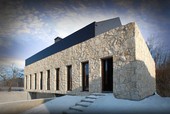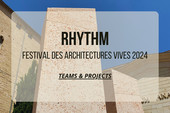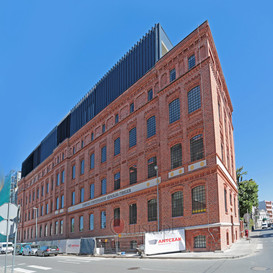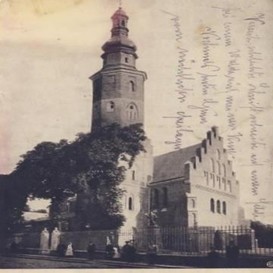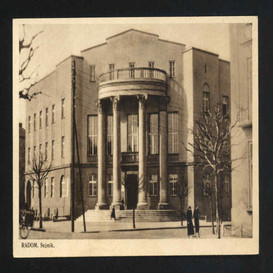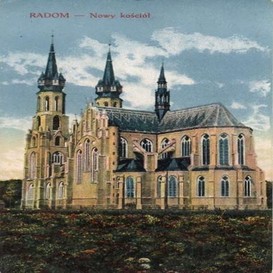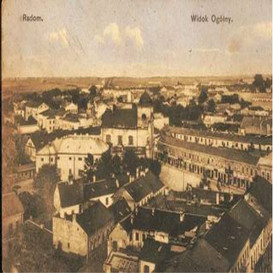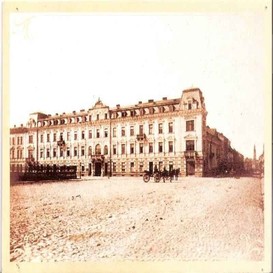INTERNATIONAL TROPICAL ARCHITECTURE DESIGN COMPETITION 2017 (ITAD 2017)

BUILDING URBAN RESILIENCE THROUGH ZERO ENERGY LIVING
80 percent of the largest cities are vulnerable to severe impacts from natural disasters and all cities face new impacts caused by climate change. Over the last decade, natural disasters affected more than 220 million people and caused economic damage of USD $100 million per year.
As climate continues to change and the adverse impacts of disasters increase in cities, there is an imminent need for urban cities to be resilient. Urban resilience is the capacity of individuals, communities, institutions, businesses and systems within a city to survive, adapt,and grow no matter what kind of chronic stresses and acute shocks they experience.
Urban cities are complex with highly interdependent systems, where its people and enterprises are dependent on infrastructure networks, communication systems etc. for their well-being. Investing in building up cities’ resilience contributes to long-term sustainability for future generations.
In a built-up urban environment where land space is limited, green buildings are vital to sustainability. According to United Nations Environment Programme (UNEP), buildings use about 40% of global energy, 25% of global water, 40% of global resources, and they emit approximately 1/3 of Green House Gases (GHG) emissions. Through effective design and incorporation of technology, developments such as Zero Energy buildings have great potential to reduce its carbon footprint for greater climate resilience. They produce enough energy to run by itself, thereby reducing its reliance on limited resources.
This year’s competition seeks innovative, impactful and practical design solutions to integrate Zero Energy buildings in an urban city of participant’s choice, with due consideration to combat global challenges in areas such as energy resilience, environmental sustainability and rapid urbanisation. The buildings and the communities which they house should promote sustainability and urban resilience in times of natural disasters and socio-economic challenges. Considerations should be given to the cohesive integration of the building in the community and how occupants/users can be influenced/engaged to play an active role towards the sustainability of the building. There is no restriction on building typology, but it has to be a medium—rise (between 6-12 storey) or a high-rise (above 13 storey) building.
Design Requirements
Entries should:
- Be applicable for the tropical/sub-tropical climate
- Identify a city for the design of the building to be based on
- Incorporate both active and passive design strategies, energy efficient features and other green building features
-
Be based on BCA Green Mark assessment tool to validate their sustainable design concepts.
For Green Mark Assessment criteria on Residential buildings,
For Green Mark Assessment criteria on Non-Residential buildings,
For more information on BCA Green Mark scheme, - Justify how the features and strategies contribute to the sustainability of the building
- Include the engineering feasibility of the design solutions proposed, where possible
- Other than the exterior building design, considerations should also be given to the building interior on how user-centric sustainable features and practices can be incorporated, including an evaluation of the effect on the overall well-being of building residents/ users
-
Design should also show how the proposed building can integrate with the surrounding
environment and landscape -
Incorporate design concepts/elements that will encourage/guide residents/ end-users to
cultivate green behaviours or practices in the tropical climate - Present a practical, feasible direction for future buildings, based on resources available in present day
- Design board should include site plans and cross-sections perspectives
The entries will be judged based on the below criteria:
| 1 | Design Concept & Creativity | 20% |
| 2 | Relevance to tropical context | 20% |
| 3 | Relevance to theme | 20% |
| 4 | Feasibility in current context | 15% |
| 5 | Design for behavioural change and social capital | 15% |
| 6 | Presentation | 5% |
| 7 | Reference to green rating | 5% |
Prizes
The judging panel will select 5 finalist entries.
Finalists will be awarded cash prizes and invited to Singapore to present their works at the Final Judging and attend the International Green Building Conference (07-09 Sep).
Timeline
Registration opens till 9 Jun
Submissions due 7 Jul
Finalists will be notified by 18 Aug
Final Judging will be held on 11 Sep
Award ceremony will be held on 12 Sep (during the International Green Building Conference)






